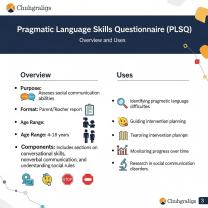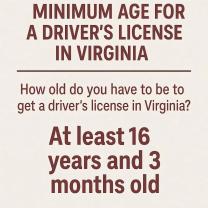What are the cheapest online business degrees?
Introduction
In today's dynamic world, pursuing a business degree has become a highly sought-after path for individuals aiming for career flexibility, significant growth opportunities, and a competitive edge in the job market. However, the escalating costs of higher education often pose a substantial barrier for many aspiring students. Fortunately, the landscape of education is evolving, with a burgeoning number of accredited universities now offering high-quality online business degrees that significantly cut down on expenses without compromising on academic rigor.
The shift towards online learning has democratized access to quality education, making it possible for students from diverse backgrounds to achieve their academic and professional goals. These programs are specifically designed to cater to working professionals, parents, and anyone needing a flexible schedule, proving that a premium education doesn't always have to come with a premium price tag.
This article serves as your comprehensive guide to navigating the world of affordable online business education. We'll delve into the most budget-friendly accredited programs available, elucidate how to verify crucial accreditation, dissect the key factors influencing costs, and arm you with practical, money-saving tips to earn your business degree online. Investing in your future through an online business degree is not just an educational decision; it's a strategic financial one.
What Are the Cheapest Online Business Degree Programs Available?
The pursuit of an affordable yet reputable online business degree often leads students to discover institutions that expertly balance cost with educational quality. Several accredited universities stand out for their commitment to providing accessible online bachelor's degrees in various business disciplines, including business administration, management, and marketing.
Western Governors University (WGU): WGU is a pioneer in competency-based education, allowing students to accelerate their degree completion by demonstrating mastery of subjects. This model can significantly reduce overall costs. Tuition is charged per six-month term, not per credit hour, averaging around $3,750–$4,200 per term for business programs, irrespective of the number of courses completed. WGU offers flexible, self-paced programs ideal for motivated learners.
Southern New Hampshire University (SNHU): SNHU is renowned for its vast array of online programs and commitment to affordability. Online bachelor's degrees in business fields typically cost around $320 per credit hour. SNHU's programs are known for their flexibility, enabling students to learn at their own pace with multiple start dates throughout the year.
University of the People (UoPeople): As a tuition-free, accredited online university, UoPeople dramatically lowers the barrier to entry for higher education. While tuition is free, students are responsible for assessment fees ($120–$400 per course) and a one-time application fee, making the total cost for a bachelor's degree remarkably low, often under $5,000. UoPeople offers degrees in Business Administration and is dedicated to providing education to underserved populations globally.
Fort Hays State University (FHSU): FHSU offers a selection of online bachelor's degrees in business, including concentrations in management, marketing, and finance, at a competitive price. Online undergraduate tuition for most programs is around $225.75 per credit hour for both in-state and out-of-state students, making it an attractive option for budget-conscious learners seeking a traditional university experience online.
These institutions exemplify how an affordable business degree online can be both high-quality and financially viable, ensuring that students can achieve their academic goals without accumulating prohibitive debt.
How Can You Find Accredited and Affordable Online Business Schools?
Finding an online business degree that is both accredited and affordable requires careful research and a strategic approach. Accreditation is paramount; it's the official recognition that an institution and its programs meet rigorous quality standards. Without it, your degree might not be recognized by employers or other educational institutions for further study.
To verify accreditation, always consult official databases. The Council for Higher Education Accreditation (CHEA) and the U.S. Department of Education are authoritative sources. They list recognized accrediting agencies. For regional accreditation—often considered the gold standard and most widely accepted—look for agencies such as the Higher Learning Commission (HLC), Southern Association of Colleges and Schools Commission on Colleges (SACSCOC), or Middle States Commission on Higher Education (MSCHE). Programmatic accreditation, like that from the Accreditation Council for Business Schools and Programs (ACBSP) or the Association to Advance Collegiate Schools of Business (AACSB), further assures the quality of a business program specifically.
Beyond accreditation, here are practical steps to find the right affordable business degree online:
Compare Tuition Rates: Obtain a clear breakdown of tuition per credit hour or per term. Remember to inquire about any additional fees (technology fees, graduation fees, etc.) that might not be immediately obvious.
Evaluate Transfer Credit Policies: If you have prior college credits, check how many can be transferred. Generous transfer policies can significantly reduce the number of courses you need to take and, consequently, the overall cost.
Explore Financial Aid Options: Don't assume an affordable program means no financial aid. Complete the Free Application for Federal Student Aid (FAFSA) to see if you qualify for federal grants or loans. Many universities also offer institutional scholarships for online students.
Check Reviews and Alumni Outcomes: Websites like Niche, U.S. News & World Report, and even LinkedIn can offer insights into student satisfaction, program quality, and the career success of alumni. While not definitive, these can provide a broader picture of the student experience and post-graduation opportunities.
Review Program Rankings: While not solely indicative of quality, reputable rankings (e.g., from U.S. News & World Report for "Best Online Bachelor's in Business Programs") can point you towards highly regarded and accredited online business degrees.
By diligently following these steps, you can confidently select an accredited online business school that aligns with your budget and career aspirations, ensuring your investment in education yields valuable returns.
What Factors Affect the Cost of Online Business Degrees?
Understanding the various components that contribute to the overall cost of an online business degree is crucial for budget-conscious students. Tuition is often the largest expense, but several other factors can significantly influence the final price tag.
Tuition: This is the primary cost, usually charged per credit hour or, in some competency-based models, per term. Public universities generally offer lower tuition rates than private institutions. Additionally, many state universities charge different rates for in-state versus out-of-state students, with the latter often paying a premium. However, many online programs at public universities offer a single, competitive tuition rate for all students, regardless of residency, making them a good option for those seeking the cheapest online business degrees.
Technology Fees: Online learning often involves specific technology requirements, and universities may levy technology fees to cover the costs of maintaining online learning platforms, digital resources, and technical support. These fees can vary widely and should be factored into your budget.
Books and Course Materials: While some programs leverage Open Educational Resources (OER) to provide free digital textbooks, many still require students to purchase textbooks, access codes for online platforms, and other course-specific materials. These costs can add up quickly, so inquire about estimated material costs per course or per semester.
Program Structure (Self-Paced vs. Semester-Based): Competency-based programs, like those at WGU, allow students to progress at their own pace. If you can complete courses quickly by demonstrating prior knowledge, you can finish your degree faster and pay for fewer terms, ultimately reducing the overall cost. Traditional semester-based programs, while offering structure, may not provide the same cost-saving opportunities through accelerated completion.
Transfer Credits and Prior Learning Assessments (PLAs): Bringing in previously earned college credits or demonstrating knowledge through PLAs (which can grant credit for work experience or self-study) can significantly cut down the number of courses you need to take. This directly translates to lower tuition costs and a faster path to graduation, making transfer-friendly institutions attractive for those seeking affordable business degree programs.
Application Fees: While often a minor cost, some universities charge non-refundable application fees. Keep an eye out for institutions that waive these fees or offer free applications, which can provide a small initial saving.
By carefully considering these factors, prospective students can make informed decisions about where to pursue their online business degree, optimizing for both quality and affordability.
Are Budget-Friendly Business Degrees Worth It?
A common misconception is that a cheaper online business degree equates to lower quality. However, this is far from the truth, especially when focusing on accredited programs from reputable institutions. Budget-friendly business degrees can be incredibly valuable investments, leading to rewarding careers and significant financial returns.
The worth of a degree is fundamentally tied to its accreditation, the robustness of its curriculum, and the caliber of its faculty, not merely its price tag. Accredited online business programs, regardless of cost, undergo stringent reviews to ensure they meet high academic standards. This means the curriculum is relevant, up-to-date, and designed to equip students with essential business skills and knowledge demanded by today's employers. Furthermore, faculty teaching in these programs often possess significant industry experience and academic credentials, bringing real-world insights into the virtual classroom.
Affordable online business degrees can effectively open doors to well-paying jobs in diverse fields such as management, finance, marketing, and entrepreneurship. Many graduates from these programs have successfully transitioned into leadership roles, started their own businesses, or advanced within their current organizations. For instance, alumni from institutions like Western Governors University or Southern New Hampshire University frequently report positive career outcomes, securing positions in major corporations or excelling in their entrepreneurial ventures. These schools prove that quality education can be accessible and lead to substantial career growth without the burden of excessive student loan debt.
The key lies in diligent research. By choosing an accredited, budget-friendly business degree option, students are not settling for less; they are making a smart, strategic investment in their future. The value comes from the knowledge gained, the skills developed, and the career opportunities unlocked, all achieved without the financial strain often associated with higher education.
How Can You Save Money While Earning a Business Degree Online?
Earning an online business degree doesn't have to break the bank. With strategic planning and awareness of available resources, you can significantly reduce the overall cost of your education. Here are actionable tips to help you save money:
Apply for Scholarships, Grants, and Tuition Reimbursement: This is perhaps the most impactful way to reduce costs.
Scholarships: Explore institutional scholarships offered by your chosen university, as well as external scholarships from private organizations, industry associations (e.g., related to business fields), and community groups. Many scholarships target specific demographics, academic achievements, or areas of study.
Grants: Unlike loans, grants do not need to be repaid. Federal Pell Grants are a common option based on financial need, but states and individual institutions also offer various grant programs.
Tuition Reimbursement: If you're currently employed, check if your employer offers tuition assistance or reimbursement programs. Many companies invest in their employees' education, especially for degrees that align with business needs.
Utilize Open Educational Resources (OER) or Digital Textbooks: Before purchasing expensive textbooks, inquire if your courses use OER, which are free and openly licensed educational materials. If not, explore digital textbook rentals or purchases, which are often significantly cheaper than new physical copies. Websites like Chegg, Amazon, and VitalSource offer affordable options.
Enroll Part-Time While Working: Juggling work and studies can be challenging, but enrolling part-time allows you to continue earning income, which can reduce your reliance on student loans. Many online programs are designed with the working professional in mind, offering flexible schedules.
Choose Programs with Free Transfer Credit Evaluation or No Application Fees: As mentioned earlier, transferring existing credits can shorten your degree path and save tuition money. Look for schools that offer free evaluations. Additionally, some universities waive application fees, which, while a small saving, contributes to overall cost reduction.
Explore Tax Deductions or Employer Tuition Assistance Programs:
Tax Deductions/Credits: Keep records of your educational expenses. You might be eligible for federal tax credits like the American Opportunity Tax Credit or the Lifetime Learning Credit, which can reduce your tax liability. Consult a tax professional for eligibility.
Employer Assistance: Beyond direct reimbursement, some employers might offer educational stipends or partnerships with universities that provide discounted tuition rates to their employees.
By proactively exploring these avenues, students can significantly lower the financial burden of earning an online business degree, making quality education more accessible and ensuring a wise investment in their future.
Optional Extra Content
Comparison Table: Affordable Online Business Programs
| University | Tuition Per Credit Hour / Per Term | Degree Type | Accreditation | Notes |
| Western Governors University | $3,750–$4,200 per 6-month term | B.S. Business Administration | Regional (NWCCU) | Competency-based, self-paced, ideal for accelerating completion. |
| Southern New Hampshire Univ. | $320 per credit hour | B.S. Business Administration | Regional (NECHE) | Multiple start dates, vast program options, generous transfer policy. |
| University of the People | Free tuition ($120–$400 fee/course) | B.S. Business Administration | Regional (DEAC) | Tuition-free model, focus on global access, low overall cost. |
| Fort Hays State University | $225.75 per credit hour | B.B.A. Various Specializations | Regional (HLC) | Public university rates, online-friendly, diverse business programs. |
Note: Tuition rates are estimates and subject to change. Always verify current costs directly with the institution.
FAQ Section:
Are online business degrees respected by employers?Yes, absolutely. As online learning has matured, employers increasingly recognize the value and rigor of online degrees, especially when earned from accredited institutions. What matters most is the accreditation of the university and the quality of the curriculum, not the delivery method. Many employers view online graduates as highly self-motivated and disciplined.
What is the average cost of an online business degree?The average cost can vary widely, from under $10,000 for programs like the University of the People to upwards of $40,000–$60,000 for more traditional or private institutions. However, many accredited, affordable online business degrees fall within the $15,000–$30,000 range for a bachelor's degree, depending on the university, transfer credits, and pacing.
How long does it take to complete an online business degree?Typically, a bachelor's degree takes about four years for full-time students (120 credit hours). However, online flexibility, transfer credits, and competency-based models (like WGU) can significantly alter this. Some students complete their degrees faster, while part-time students may take longer, often 5-6 years.
Can I work full-time while studying online?Yes, many online business degree programs are specifically designed for working professionals. They offer asynchronous learning environments, allowing students to complete coursework on their own schedule, fitting studies around work and personal commitments. This flexibility is a major advantage of pursuing an online degree.
Conclusion
The landscape of higher education has evolved, making quality online business degrees more accessible and affordable than ever before. For students seeking flexibility, career advancement, and a valuable credential without the burden of excessive debt, the options are plentiful and reputable. From competency-based models at Western Governors University to the tuition-free structure of the University of the People, a variety of low-cost online business schools are committed to providing excellent education.
We've explored how institutions like SNHU and Fort Hays State University offer competitive tuition rates while maintaining high academic standards. The key to unlocking these opportunities lies in diligent research, a keen eye for accreditation, and a proactive approach to financial planning. Remember to verify accreditation through official databases, compare tuition and fees across various programs, and fully explore all available financial aid options, including scholarships, grants, and employer tuition assistance.
By making an informed decision and leveraging cost-saving strategies like utilizing transfer credits or open educational resources, you can significantly reduce the financial investment required for your education. Investing wisely in an accredited, budget-friendly business degree online is not just about earning a qualification; it's about building a solid foundation for long-term financial stability and a rewarding professional career. Your journey towards a brighter future begins with a smart educational choice today.














FinanceFuture
on October 11, 2025Don't overlook public universities like Fort Hays State. Their online rate is the same for in-state/out-of-state, making it one of the most affordable business degree programs with regional accreditation.
AcceleratedEd
on October 11, 2025The value of a cheaper degree is in its accreditation! My employer respected my degree because the school was regionally accredited, not because of the price tag.